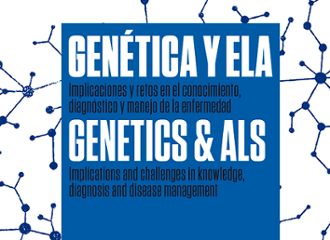Research projects
Start of main content
Evalua&ng the An&tumor Poten&al of Chaperonin CCT modulators
22st national competition for scientific and technical research
Personalized therapy, immunotherapy and cancer
Senior Researcher : Jorge Cuellar
Research Centre or Institution : Universidad de Salamanca
Abstract
Proteostasis, or protein homeostasis, is essential for the proper functoning of eukaryotic cells, with molecular chaperones playing a crucial role in this process. Among them, the eukaryotic chaperonin CCT (chaperonin containing TCP-1) stands out for its involvement in the folding of approximately 5–10% of cellular proteins, including key cytoskeletal components such as actin and tubulin. Additionally, CCT is responsible for folding and regulating cancer-related proteins such as VHL, p53, and STAT3. Overexpression of CCT has been linked to tumor growth and metastasis, making it a promising therapeutic target for cancer treatment.
This project aims to identify pharmacological modulators of CCT and evaluate their an/tumor poten/al in cancer cell models. Through high-throughput screening of commercial compound libraries, we have identified several molecules that affect the thermal stability of CCT. Among these, five exhibit high affinity for the chaperonin, and two have demonstrated selective toxicity against breast cancer cell lines. These findings suggest that targeting CCT could be an effective strategy for combating certain types of cancer.
To validate our hypothesis, we will conduct comprehensive func/onal assays, including ATPase activity evaluation, cofactor interactions, and protein refolding studies. Additionally, we will assess critical aspects such as cell viability, cytoskeletal integrity, and migratory capacity in specific cancer cell models. These experiments will provide deeper insights into the effects of CCT modulators on tumor cells. Furthermore, we will analyze their impact on the cellular proteome using cellular thermal shift assays, offering valuable information on how these compounds influence the protein environment.
High-resolution structural characterization of CCT-modulator interactions will be performed using cutting-edge cryo-electron microscopy, allowing us to visualize these interactions at the molecular level. The expected results could lay the foundation for the development of a new generation of antitumor drugs specifically targeting CCT. This approach aims to provide more selective and effective therapeutic strategies in the fight against cancer. With this innovative strategy, we seek to contribute to cancer research advancements and improve therapeutic options for patients.
-
 Activities related
Activities related
-
 Projects related
Projects related
-
 News related
News related
-
 Publications related
Publications related
 Activities related
Activities related
-
26
Jun
2024
Conferencias La aventura de la ciencia Madrid, Miércoles 26 de junio de 2024, 19:00 horas
-
13
Feb
2025
17th edition. Cycle of conferences and debates in science Digital Twins: Technological Advances and Application Opportunities Madrid, Thursday, 13 February 2025, 17:30 hours
-
18
Feb
2025
Session New Therapies for the Inflammation Treatment Madrid, Feb 18th, 2025, Tuesday. 4PM
 Projects related
Projects related
- Development and Application of saRNAs for the Treatment of Rare Monogenic Diseases 2024 Senior Researcher : María Luisa Cayuela Fuentes
- CHANNELOSOME RESCUING PEPTIDES IN THE TREATMENT OF ARRHYTHMIAS IN INHERITABLE HEART DISEASES 2024 Senior Researcher : José Jalife Research Centre or Institution : Centro Nacional de Investigaciones Cardiovasculares (CNIC). Madrid
- Mechanisms for sustaining mitochondrial genome integrity and function during hematopoiesis. 2024 Senior Researcher : Ana Victoria Lechuga Vieco Research Centre or Institution : Fundació Clínic per a la Recerca Biomèdica. Hospital Clínic. Barcelona
 News related
News related
 Publications related
Publications related


End of main content



